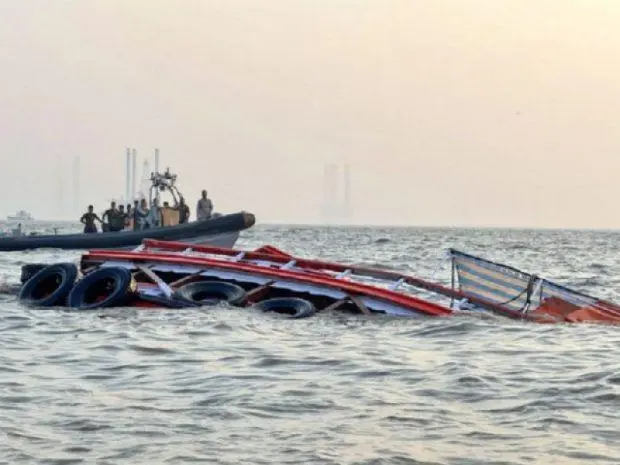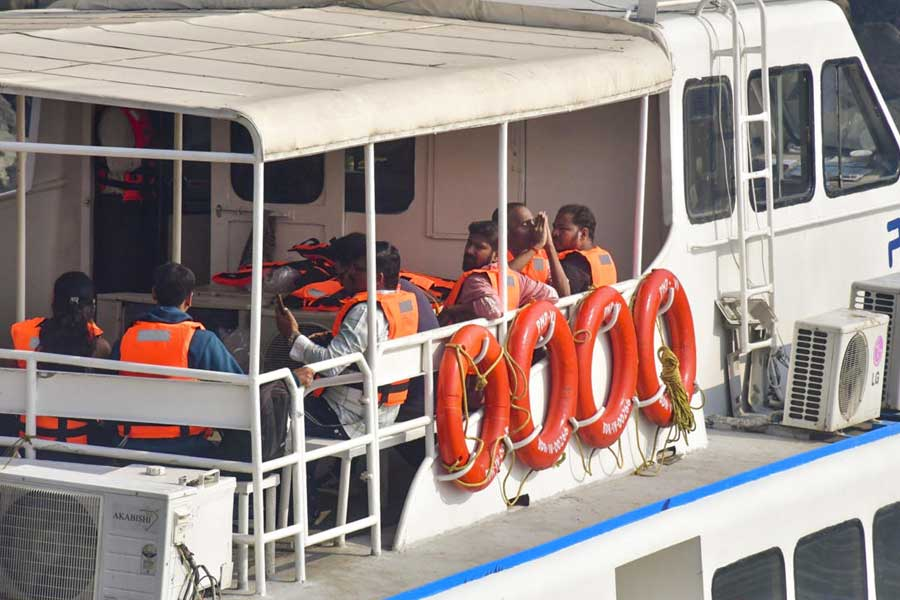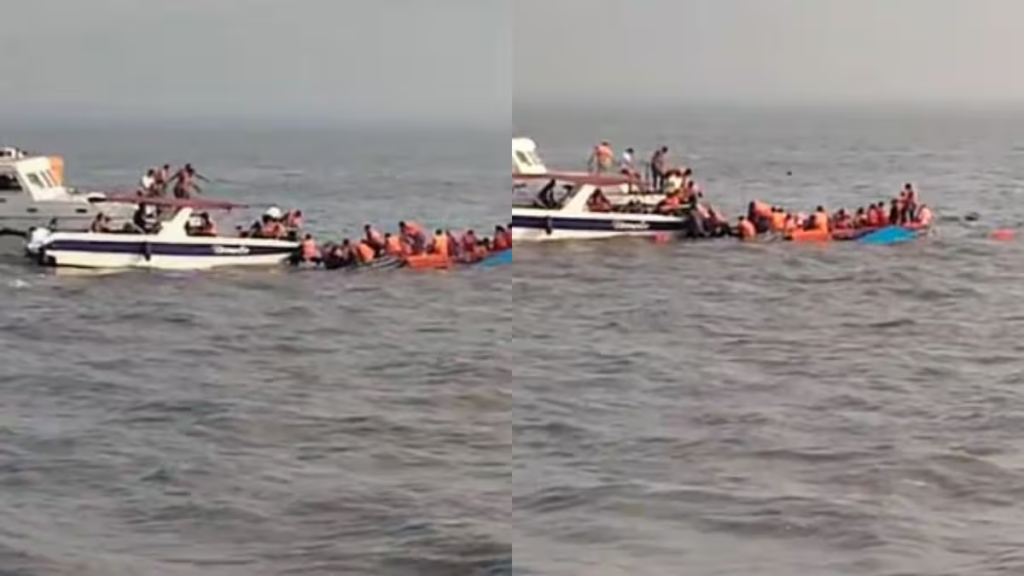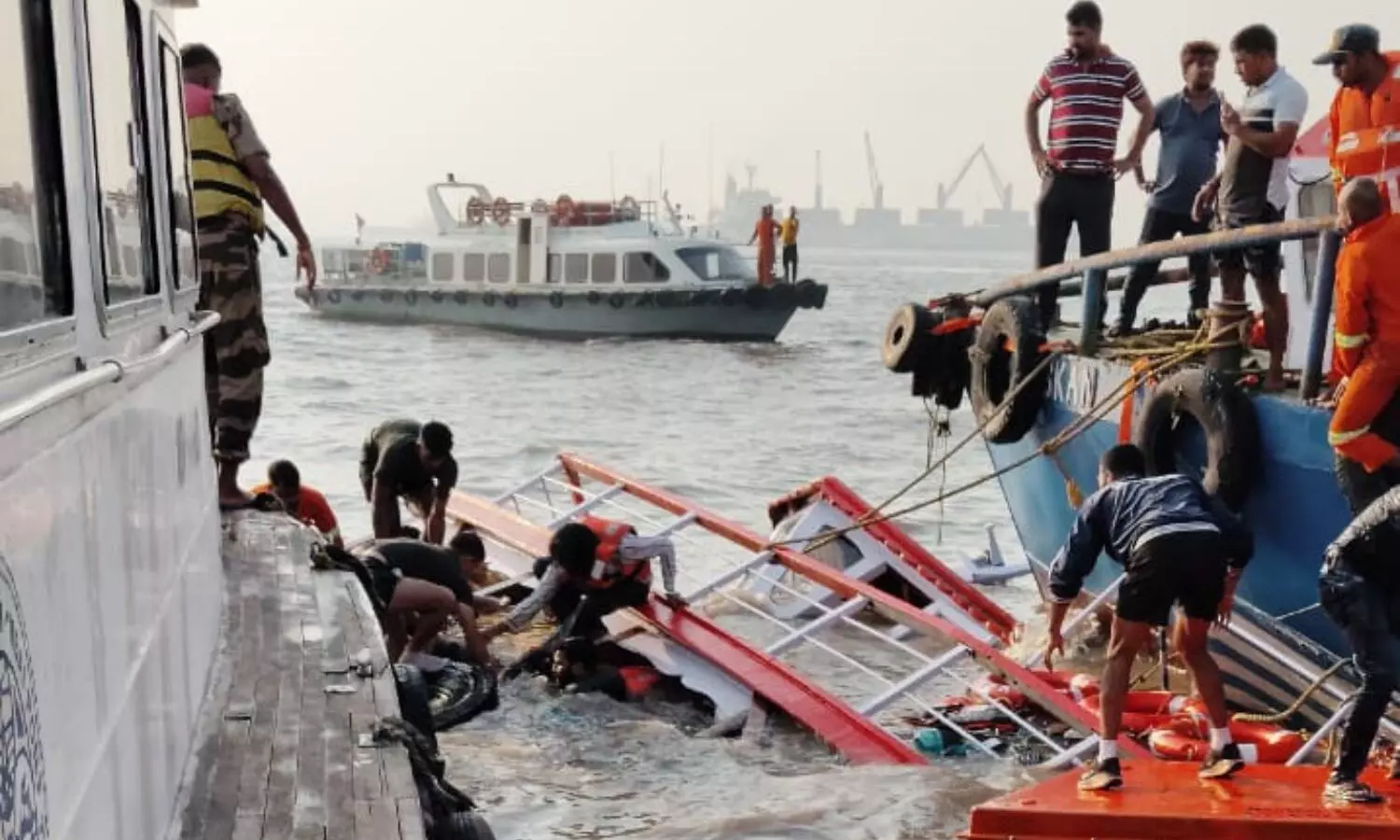The tragic ferry accident near Elephanta Island has raised safety concerns, impacting tourist activity while authorities take steps to reassure visitors.
Elephanta Island, a UNESCO World Heritage Site near Mumbai, is renowned for its ancient rock-cut caves and historical significance. The destination has long attracted tourists from across the globe.
However, a recent ferry capsizing incident involving a collision with a naval speedboat has shaken public confidence in ferry services. The tragedy claimed 14 lives and left lingering apprehensions among tourists.
Despite the gravity of the incident, life near Mumbai’s Gateway of India, the primary boarding point for ferries to Elephanta Island, continued almost as usual.
While some tourists displayed apprehension, others adhered to their plans, undeterred by the tragedy. In this blog, we explore the impact of the incident on tourism, the responses of visitors and stakeholders, and the measures being taken to prevent future occurrences.
The Immediate Aftermath of the Tragedy
The ferry capsizing incident sent shockwaves through Mumbai and the maritime community. Port authorities and the Maharashtra Maritime Board moved swiftly to resume operations, emphasizing adherence to safety measures to regain public trust. Enhanced scrutiny was visible, as authorities inspected vessels and ensured life jackets were available for every passenger.
Read : 10 Best Food Cities in the World: Mumbai Ranks 5th
However, the tragedy did not deter everyone. Families, groups of friends, and foreign tourists continued to queue up for ferry rides the day after the accident.

For many, the allure of visiting Elephanta Island outweighed the fear of potential mishaps. A Kolkata tourist, Raju Nath, candidly expressed his view: “Accidents happen everywhere—planes, trains. Life has risks, but that shouldn’t stop us from exploring.”
Read : Justin Bieber Arrives in Mumbai for Anant and Radhika’s Wedding Event
The resilience of the tourists was echoed by locals and vendors at Elephanta Island. Shops and stalls remained open, catering to a steady stream of visitors who chose not to alter their plans.
“The accident was unfortunate, but it wasn’t the ferry’s fault,” said a local stall owner, emphasizing the rarity of such incidents in the area.
Tourism Resilience vs. Safety Concerns
While many tourists maintained their travel plans, others expressed concerns about the safety of ferry services. The incident has spotlighted long-standing issues, including the maintenance of vessels and the enforcement of safety measures.
Sharafat Mukadam, a seasoned ferry operator, defended the industry’s safety record, stating, “This is the first major incident in 40 years. We follow strict passenger limits and ensure life jackets are available.” His sentiment was shared by other operators, who emphasized their commitment to maintaining safety standards.

However, these assurances did little to ease the concerns of some potential visitors. The capsize brought attention to perceived gaps in safety protocols, such as inadequate pre-departure briefings and emergency preparedness drills. Critics also pointed to the need for stricter regulation and oversight of the maritime transport sector.
Despite these challenges, the tourist flow at the Gateway of India did not appear significantly reduced in the immediate aftermath. According to on-ground reports, 16 boats departed for Elephanta Island within three hours on Thursday morning.
The continuation of ferry operations suggests that while the incident has raised questions, it has not yet resulted in a drastic decline in tourism activity.
Steps Toward Rebuilding Trust and Ensuring Safety
The ferry tragedy has prompted authorities to act swiftly to restore public confidence in the safety of maritime transport. The Maharashtra Maritime Board and port authorities have announced stricter enforcement of safety protocols, including enhanced inspections and mandatory life jacket distributions.
Drills and training sessions for ferry operators are also being considered to improve preparedness for emergencies. Sharafat Mukadam highlighted the importance of passenger cooperation in maintaining safety, urging tourists to adhere to rules and wear life jackets during journeys.
Furthermore, the tragic incident has underscored the need for better coordination between different agencies, including the Navy and civilian maritime operators. Improved communication channels could help prevent future collisions and ensure swift response times in emergencies.

Tour operators and local businesses are also playing a role in reassuring tourists. By emphasizing the rarity of such incidents and the safety measures now in place, they aim to mitigate the impact on tourism. Efforts to educate visitors about maritime safety and instill confidence in ferry services are ongoing.
The ferry capsizing incident near Elephanta Island serves as a stark reminder of the importance of prioritizing safety in tourism and transportation.
While the tragedy has undoubtedly impacted public sentiment, the resilience of tourists and the proactive measures being implemented by authorities and operators provide hope for recovery.
As Elephanta Island continues to draw visitors with its historical allure and cultural significance, ensuring the safety and confidence of travelers will be crucial. Only through collective efforts can this iconic destination regain its status as a safe and enjoyable experience for all.

